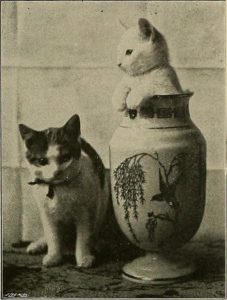
67th chat, Tuesday October 11 2016: history of critical librarianship
Moderated by @ClaireB_LIS @violetbfox
Storify (pdf, html) by @KristynMC83
Note: critlib follows in the footsteps of many critical, radical, progressive groups, while adding a unique voice. We’re using “critical librarianship” below as a shorthand to refer to all library workers who seek to promote social justice and question the commodification of libraries and the value of “neutrality”.
Suggested readings:
- Morrone, M., & Friedman, L. (2009). Radical reference : socially responsible librarianship collaborating with community. The Reference Librarian, 50(4). (pdf)
- Harger, E. (2016). Which Side Are You On? : Seven Social Responsibility Debates in American Librarianship, 1990–2015. (link to WorldCat; especially the Introduction and chapter 1)
Discussion questions:
- Q1. What are similarities or differences in current approaches to bringing social justice into libraries vs. previous efforts? #critlib
- Q2. How is the work of previous critical librarians evident in library practices today? Is it more evident in some areas of practice? #critlib
- Q3. What do the critical theory-focused elements of #critlib bring to the critical librarian conversation? How do they detract?
- Q4. What do we lose if we aren’t aware of our critical librarianship history? #critlib
For further exploration:
- Pettigrew, K., Fidel, R., & Bruce, H. (2001). Conceptual frameworks in information behaviour. Annual Review of Information Science and Technology, 35, 43–78.
- Pettigrew, K., & McKechnie, L. (2001). The use of theory in information science research. Journal of the Association of Information Science and Technology, 52(1), 62–73.
- Kagan, A. (2015). Progressive Library Organizations: A Worldwide History. (link to WorldCat)
- Samek, T. (2001). Intellectual Freedom and Social Responsibility in American Librarianship, 1967-1974 (link to WorldCat).
You can find more great resources suggested by @LibJuice Press.